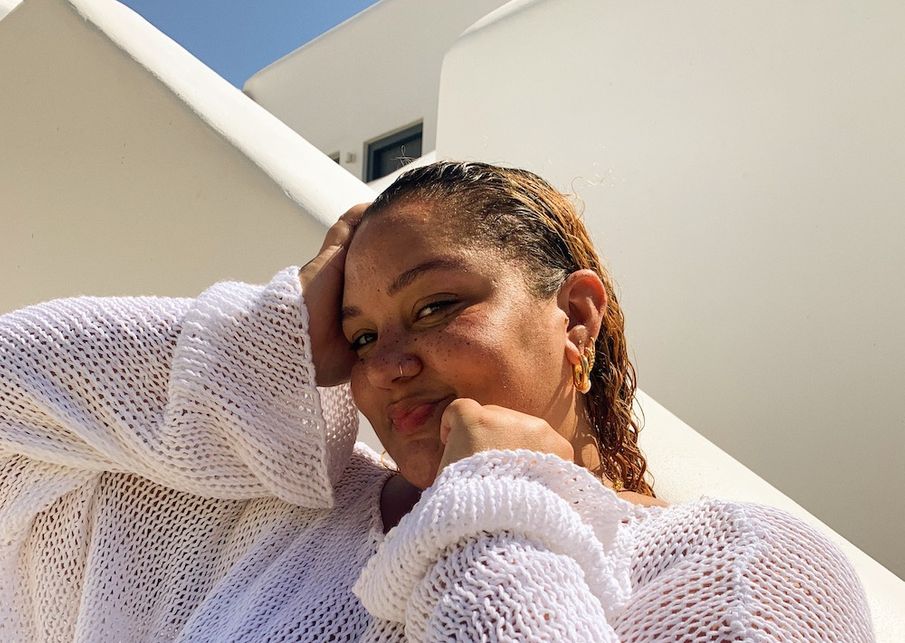Columnist Grace Victory shares essential steps towards accepting that your health and wellbeing matter, plus ways to start taking better care of yourself today
The concept of ‘self-care’ was first introduced to me in 2016, when my therapist at the time asked: “So what do you do to look after yourself?” And I didn’t have an answer.
I was 26 years old, and seriously lacking the knowledge of how to care for myself in a way that was kind, intentional, and multi-dimensional. Back then, I was the queen of self-sabotage; I used food as a coping mechanism, and the thoughts I had about myself, particularly my own body, were horrendous.
In the beginning, the idea of self-care felt like too much for me. I hadn’t put my health first before, so when I started to treat myself with love, it felt foreign. There was a complete disconnect from my inner child, adult, and ego – I was blind to who I really was, because I never took the time to actually face her. Self-care forced me to slow down, and ultimately led to me knowing myself on a profoundly deep level. Of course, therapy and emotional education helped, but my life changed when I began to value myself through taking care of me – mind, body, and soul.
The problem is that self-care is rarely taught, especially where childhood trauma is concerned. So many of us are operating from a place of disconnect because of trauma. Society as a whole is in a constant fight-or-flight mode, just trying to survive, and add systemic racism, systemic fat biases, and a global pandemic, self-care can often be the last thing on people’s minds.
So how do you know when some self-care is in desperate need? Listen to your body. Are you tired? Stressed? Physically unwell? Overspending? Arguing with loved ones? Thinking you’re not good enough? Always working? These are just some of the tell-tale signs that you are struggling to take care of yourself.
In my opinion, self-care is our lifeline. It is the way in which we can come home to ourselves, feel connected and balanced, and ultimately lead a more fruitful life. It is learning how to manage our finances, it is having boundaries with ourselves and others, it is saying no and not feeling guilty, it is feeling our emotions – even the ‘difficult’ ones – and it’s about stimulating ourselves in a way that makes us feel content. Here are just a few suggestions if you are searching for some inner peace.
Sit with your feelings
Often, our relationships break down due to miscommunication, and sometimes that’s because we listen to respond instead of listening to hear. Have you ever had a conversation with someone where you zone out, and think about all the things you want to say? I have! This can happen at work with a difficult boss, or at home with your partner – either way, it can lead to a heated argument where you both say things you don’t mean.
A great way to slow down and prevent this from happening is to sit with any feelings that arise before you respond. I am known to say: “Give me 10 minutes to respond as I need to process how I feel,” and 99.9% of the time this allows me a moment to reflect. Of course, responding in this way, and advocating for yourself, can be extremely difficult, but over time it really does get easier. Sitting with your feelings is a way to connect to yourself, learn your subconscious triggers, and to start processing your feelings.
Self-care forced me to slow down, and ultimately led to me knowing myself on a profoundly deep level
Develop routines
Nothing screams self-care like having a mindful morning and night-time routine. It doesn’t need to be long, but it does need to exist so you can start and close your day right – even if you’ve had difficulties in between those times.
When you wake, set something in place that makes you feel good – maybe it’s a hot shower with music playing, and then a nutritious breakfast, or a quick walk in the park at sunrise and taking the time to journal. Whatever it is, define it and do it!
I learned the importance of evening routines when I worked in a children’s care home. If I dimmed the lights, made them warm drinks, and we collapsed on the sofa an hour before bedtime, the kids would sleep so much better. In the mornings we need to give our nervous systems a chance to wake up, and in the evenings, we need to give them a chance to calm down. So, at night, make your space cosy and chilled, to prepare you to switch off and rest. Again, define what this means for you, but eliminating any harsh lighting is a good place to start.
Get creative
A wonderful way to connect with your inner child is through play. Our inner children are the scared and silly ones, and no matter how old we think we are, our past selves are deep within us, often longing to be seen, felt, and accepted. We cannot go back and change our early childhood experiences, but now as adults we can honour our inner children, and connect to them. Whether it’s through painting, drawing, dancing, or writing poems and stories, anything that is playful and creative helps to ground us, and come home to ourselves. Love yourself enough to give time to every part of you. We are never too grown up to play! Love Grace x
Come back next month for more from Grace!



Comments